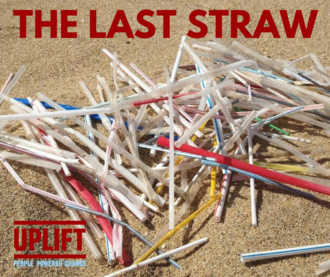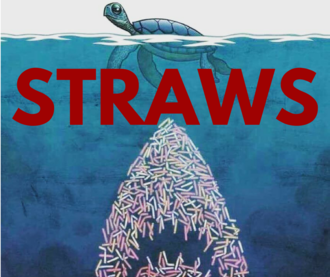- Featured
- Animal Rights
- Anti-racism
- Arts & Culture
- Children
- Climate
- Corporate accountability
- Crime
- Disability rights
- Economic
- Education
- Environment
- Food and Sustainable Production
- Gender Equality
- Governance and Transparency
- Health
- Housing
- LGBT Rights
- Mental health
- Northern Ireland
- Planning
- Privacy and Data Protection
- Rural Inequality
- Social Justice
- Trade
- Transport and Infrastructure
- Workers' Rights
- More
-
NO TOXIC INCINERATORS IN IRELANDIncineration is TOXIC. Do not believe the authorities and Politicians.47 of 100 SignaturesCreated by John Adams
-
Let's stop turning our urban neighbourhoods into concrete jungles - let's bring our wildlife back!!I would like to encourage people to start thinking about planting NATIVE species in their gardens, instead of foreign exotics, which are mostly force-grown by garden centres and are of very little value to our native wildlife!! Good examples of native species are: hawthorn (crataegus monogyna) which makes a wonderful thorny hedge. Also great is holly (ilex aquifolium) a red-listed evergreen with beautiful shiny dark-green leaves and red berries, much loved by birds. Another excellent choice is our native black elder (Sambucus Nigra) and our native Rowan tree (Sorbus Aucuparia). You could also plant silver birch (Betula Pendula) in a slightly larger garden. There are many more species to choose from, but those are some of the best!! I'm in the process of creating my own little piece of heaven in my back garden: most of what I've planted is native to Ireland (and central Europe) as you can see in my campaign photograph. My garden is still very young and mightn't look like much, so don't be put off by what it looks like right now!! Wildlife gardening is wonderful, as I am increasingly finding out myself!! Not only am I learning SOOO much (which is great for the brain) - I am also getting plenty of fresh air and gentle exercise, which beats spending too much time indoors or on social media!! Wildlife gardening is also wonderful for MENTAL HEALTH, another topical issue I care deeply about: I suffer from anxiety and find, that being out in my garden always helps me to relax and unwind! I am looking for like-minded people I can share my passion with!! Also, we need to start putting down less concrete and gravel in our gardens: we are at risk of turning our beautiful neighbourhoods into an urban wasteland!! As most of us already know, many of our native wildlife species are in serious decline, due to modern intensive farming practices in the countryside and also for other reasons. Many of our songbirds, for example, have found refuge in our towns and cities, where they have been able to find hedges to nest in and have been able to take advantage of various food sources no longer available in their previous native habitats. I am increasingly seeing a trend, where people are 'tidying up' their gardens, by putting down more and more hard landscaping and by taking out trees, hedges or shrubs, crowding out our urban wildlife in the process!! This is happening EVERYWHERE, not just in my local area!! I think this is tragic and will do very little for our own wellbeing in the long run. We could create an urban paradise, abundant with wildlife, simply by planting NATIVE trees, shrubs, hedges and wildflowers in our own gardens!! This would also help tackle climate change. This is an appeal, not to politicians or other officials, but to my fellow citizens, who - I'm sure - don't want to end up living in a concrete jungle, either!! PLEASE SIGN MY PETITION, SO I KNOW, PEOPLE CARE ABOUT THIS ISSUE!! Maybe you could pledge to plant even ONE native shrub, tree or wildflower bed in your own garden!! It's time to open our hearts and bring nature back into our lives!!291 of 300 SignaturesCreated by Carola Blaney
-
Request Fingal County Council to put up a CCTV in the Park in St CatherinesThere is drug taking, drinking, littering and vandalism on a daily basis. The Park is a nice recreational place for all local residents and their children we want to keep it safe and tidy. Please help by signing this petition.209 of 300 SignaturesCreated by Kata Wallner
-
BAN MILITARY TESTING IN IRISH WATERS!We want an investigation to be implemented into the mass stranding of at least 16 offshore deep diving cetaceans, beaked whales which occurred from August 3rd to August 25th 2018, along the north-west coast of Ireland from Co. Mayo, Donegal and Co. Antrim. Simultaneously, 13 beaked whales stranded off the Scottish coasts and 2 more were reported stranded in Iceland. These are minimum estimates of mortality as they do not account for animals which may have sunk to the seabed or animals stranded in remote places and remain unreported. Previous studies on cetacean carcass drift have suggested that strandings represent a minimum of at sea mortality; depending on drift conditions carcasses may not always wash ashore, thus, the actual number of dead animals may be much higher (Peltier et al., 2014). Other mass stranding events of beaked whales around the world indicate beaked whales are susceptible to death or injury directly (temporary/permanent hearing damage) or indirectly (gas embolism, ( also known as the 'bends' ) due to extremely loud man-made oceanographic noise such as that produced by low and mid frequency naval sonar and certain types of acoustic survey used to examine the sea floor and below. Mass strandings of beaked whales associated with naval exercises have been recorded in Greece, the Canaries and the Bahamas. With no certain cause of these beaked whale mortalities on Irish shores having yet been established, this needs to be recognised as an unusual mass stranding event (UME) in an effort to identify the potential cause(s) and perhaps prevent future stranding events. Beaked whales are among the most diverse yet least understood groups of marine mammals.owing to their deep-water oceanic existence and typically inconspicuous surface behavior. Feeding in depths often exceeding 1000 m, most species are rarely seen; some have never been identified alive at sea and are known only from beach-stranded carcasses. According to the IUCN Red List, approximately 40% of marine mammal species are considered Data Deficient, whereas for the Ziphiidae, 90% are Data Deficient. Population trends for all beaked whale species are listed as unknown on the IUCN Red List. Ziphius and Mesoplodon are the two beaked whale genera known to suffer impacts from naval sonar activities. They exhibit strong behavioral responses to certain types of active sonar, resulting in altered movements and space use for prolonged periods after exposure (e.g., several days). In more extreme cases there can be physiological consequences leading to death or stranding. Mass strandings of beaked whales throughout the Northern Hemisphere have been associated with offshore military activity (Moore & Barlow, 2013). It is important that we aim to mitigate these stranding events and reduce human impacts on beaked whales in Irish waters. Thank you for taking the time to address our concern, Kind Regards, Emer Keaveney, Executive Director, ORCA Ireland.1,269 of 2,000 SignaturesCreated by ORCA Ireland Ocean Research & Conservation Association

-
ESB: Don't push dirty coal fired power on the PhilippinesIreland has just divested from fossil fuels. But at the same time, our publicly owned Electricity Supply Board is pouring money into a coal fired power station in the Philippines. We already know we're dangerously close to losing our shot at a safe climate. For us to avoid disaster, 80% of known fossil fuel reserves have to stay in the ground and never be burnt. That's why it's crazy to be building new coal fired power stations - we should be closing down the ones that already exist. What's more, this project has seen shocking abuses of the community from the start. Residents were lied to, and told the project would be a Liquid Natural Gas plant. After it was approved, it was changed to a coal fired power plant. People who live near other coal fired power plants in the Philippines have seen a huge spike in tuberculosis and other respiratory diseases, but residents are not being heard. People were forced out of their homes to build the plant, some of whom got no compensation and some who were coerced to sell for far less than market value. Even worse, local priests who have spoken out have been receiving threatening text messages. Ireland cannot back a project like this. As a developed country, our role must be to support fair, renewable, and community led energy initiatives in developing countries - not dirty coal.103 of 200 SignaturesCreated by Clodagh Schofield

-
Community Swimming Pool for West WicklowBlessington and the surrounding areas have a growing young population. Presently the residents must travel outside of our community to Naas or Tallaght to access swimming facilities. The nearest community swimming pool to West Wicklow, provided by Wicklow County Council, is in Bray, an hour drive away from Blessington by car. According to the 2016 Census the municipal district population of West Wicklow is over 26,000 people. A community swimming pool would be of great benefit to the local communities and would help promote physical exercise, water safety and provide local employment. We believe that a community swimming pool needs to be provided for the growing population of West Wicklow.2,013 of 3,000 SignaturesCreated by Deirdre McCormack
-
Stop the use of non degradable plastic straws: Avoca Mt Usher GardensA move like this is exactly what we need to turn the tide on plastic pollution. We all know how devastating plastic waste can be on marine life, and by 2050 it is predicted that there will be more plastic in our oceans than fish. If enough of us pressure the local members in our area - we could create a ripple effect that will make all restaurants and café’s ditch single use plastic straws. If a town like Westport can commit to making all its pubs plastic free, why can’t others? [3] “We are a coastal town and want to preserve the wildlife and nature in Westport, so getting rid of plastic straws helps us to do that,” Chambers said. "It is very likely that all the other businesses in the town will come on board.” Notes [1] http://www.rai.ie/restaurants-association-ireland-ban-plastic-straws [2] https://www.theguardian.com/business/2016/jan/19/more-plastic-than-fish-in-the-sea-by-2050-warns-ellen-macarthur [3] http://www.thejournal.ie/plastic-straws-ban-westport-3999771-May2018/130 of 200 SignaturesCreated by Anna Doyle
-
Stop the use of non degradable plastic straws: NewbridgeA move like this is exactly what we need to turn the tide on plastic pollution. We all know how devastating plastic waste can be on marine life, and by 2050 it is predicted that there will be more plastic in our oceans than fish. If enough of us pressure the local members in our area - we could create a ripple effect that will make all restaurants and café’s ditch single use plastic straws. If a town like Westport can commit to making all its pubs plastic free, why can’t others? [3] “We are a coastal town and want to preserve the wildlife and nature in Westport, so getting rid of plastic straws helps us to do that,” Chambers said. "It is very likely that all the other businesses in the town will come on board.” Notes [1] http://www.rai.ie/restaurants-association-ireland-ban-plastic-straws [2] https://www.theguardian.com/business/2016/jan/19/more-plastic-than-fish-in-the-sea-by-2050-warns-ellen-macarthur [3] http://www.thejournal.ie/plastic-straws-ban-westport-3999771-May2018/15 of 100 SignaturesCreated by Frank Power
-
Stop the use of non degradable plastic straws: IMC CinemasA move like this is exactly what we need to turn the tide on plastic pollution. We all know how devastating plastic waste can be on marine life, and by 2050 it is predicted that there will be more plastic in our oceans than fish. Plastic straws should only be given out when requested by people who have a need for them. If enough of us pressure the local members in our area - we could create a ripple effect that will make all restaurants and café’s ditch single use plastic straws. If a town like Westport can commit to making all its pubs plastic free, why can’t others? [3] “We are a coastal town and want to preserve the wildlife and nature in Westport, so getting rid of plastic straws helps us to do that,” Chambers said. "It is very likely that all the other businesses in the town will come on board.” Notes [1] http://www.rai.ie/restaurants-association-ireland-ban-plastic-straws [2] https://www.theguardian.com/business/2016/jan/19/more-plastic-than-fish-in-the-sea-by-2050-warns-ellen-macarthur [3] http://www.thejournal.ie/plastic-straws-ban-westport-3999771-May2018/162 of 200 SignaturesCreated by Fearghal Mc Govern
-
Stop the use of non degradable plastic straws: Arc Cinema DroghedaIf Westport can do it then Drogheda can too! A move like this is exactly what we need to turn the tide on plastic pollution. We all know how devastating plastic waste can be on marine life, and by 2050 it is predicted that there will be more plastic in our oceans than fish. This is why Uplift members are banding together to create local petitions and call on their local cafes, restaurants and pubs asking them to commit to stop using plastic straws. If enough of us pressure the local members in our area - we could create a ripple effect that will make all restaurants and café’s ditch single use plastic straws. If a town like Westport can commit to making all its pubs plastic free, why can’t others? [3] “We are a coastal town and want to preserve the wildlife and nature in Westport, so getting rid of plastic straws helps us to do that,” Chambers said. "It is very likely that all the other businesses in the town will come on board.” Notes [1] http://www.rai.ie/restaurants-association-ireland-ban-plastic-straws [2] https://www.theguardian.com/business/2016/jan/19/more-plastic-than-fish-in-the-sea-by-2050-warns-ellen-macarthur [3] http://www.thejournal.ie/plastic-straws-ban-westport-3999771-May2018/23 of 100 SignaturesCreated by Simon Gregory
-
Stop the use of non degradable plastic straws: Schull Harbor HotelA move like this is exactly what we need to turn the tide on plastic pollution. We all know how devastating plastic waste can be on marine life, and by 2050 it is predicted that there will be more plastic in our oceans than fish. This is why Uplift members are banding together to create local petitions and call on their local cafes, restaurants and pubs asking them to commit to stop using plastic straws. If enough of us pressure the local members in our area - we could create a ripple effect that will make all restaurants and café’s ditch single use plastic straws. If a town like Westport can commit to making all its pubs plastic free, why can’t others? [3] “We are a coastal town and want to preserve the wildlife and nature in Westport, so getting rid of plastic straws helps us to do that,” Chambers said. "It is very likely that all the other businesses in the town will come on board.” Notes [1] http://www.rai.ie/restaurants-association-ireland-ban-plastic-straws [2] https://www.theguardian.com/business/2016/jan/19/more-plastic-than-fish-in-the-sea-by-2050-warns-ellen-macarthur [3] http://www.thejournal.ie/plastic-straws-ban-westport-3999771-May2018/12 of 100 SignaturesCreated by Siobhan O'Donoghue
-
Switch the Lucan water supply back to Ballymore-EustaceThis utility cannot guarantee the quality of the water coming from the plant. Treatment facilities for the bugs cryptosporidium and giardia at the Leixlip Water Treatment Plant are insufficient, according to the Environmental Protection Agency. We were never supplied by this treatment plant it was a very new move over to it last year. We were lead to believe that limescale was the only issue and perfectly safe for over a year now, since this petition was launched. Yet we discover that procedures were not being followed all this time through a report by the EPA. People have complained of stomach issues and flare ups on skin issues such as eczema and been ignored.2,722 of 3,000 SignaturesCreated by Caroline Norman




.png)







